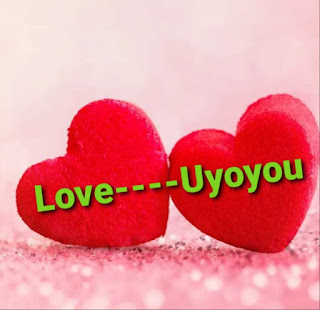Learn Isoko Language Part 1 (Isoko Language Alphabet/ABC)
Learn How to Speak and Write
Isoko Language Fluently
To be good in every language, you must be familiar with the alphabet, and the vocabularies. And Isoko language is rich with diverse dialects. Meaning if you are learning it, you should be open to all the dialects. Do not be biased toward any of the dialects. Also keep in mind that there is a central Isoko language. That will be our guide.Tips of learning a new language.
- Learn a few greeting words in the language before you learn the alphabet.
- Learn the alphabet of the language you are learning, if necessary.
- Learn vocabulary. (at least ten each day)
- Learn to count in the new language.
- Don't worry too much about grammar.
- Work on pronunciation.
Let's get started with the:
Click here to learn the Alphabet Pronunciation
Alphabet
A B D E
Ẹ
F G H I
J
K L M N
O
Ọ P R S
T
U V W Y
Z
The
Vowels
A E Ẹ I O Ọ U
The
Consonants
B D F G
H J K L M N P R S T V W Y Z
Digraphs
GB, GH,
KP, HW, WH, TH, SH, NW, NY, CH
A B D E Ẹ
F G H I J
K L M N O
Ọ P R S T
U V W Y Z
The Vowels
A E Ẹ I O Ọ U
The Consonants
B D F G H J K L M N P R S T V W Y Z
Digraphs
GB, GH, KP, HW, WH, TH, SH, NW, NY, CH
Vocabularies (10)
PRONUNCIATION GUIDE FOR PART 1 SECTION 2 VIDOE
Father(s)
|
Ọsẹ (Esẹ)
| |
Mother(s)
|
Oni (Ini)
| |
Child/Children
|
Ọmọ (Emọ)
| |
Girl(s)
|
Ọmọtẹ (Emetẹ)
| |
Boy(s)
|
Ọmọzae (Emezae)
|
Emezare
|
Person/People
|
Ohwo (Ahwo)
| |
Animal(s)
|
Arao (Erao)
| |
Bird(s)
|
Ọvra (Evra)
|
Emevra
|
Insect(s)
|
Amara (Emera)
| |
Fish(es)
|
Emeri (Imiyei)
|
Iyeri/Iyei
|
Greetings
The natural way to say good morning and good afternoon in Isoko language is, mẹrigwọ or mẹrigwẹ. That is how you greet an older person.An older person will now respond vrẹdo!
Mẹrigwọ/vrẹdo
Other Greetings
How are you? Ẹvẹ whọ rrọ/Ẹvẹ na? Answer=mẹ riẹ/mẹ sasa.
Some greetings and their synonyms (10)
Some greetings and their synonyms (10)
How is your family?
|
Ẹvẹ ẹkuẹ ra?
| |
How is work?
|
Ẹvẹ iruo?
| |
Hope all is well?
|
Wha sasa?
|
Kọ obọ uwou o rro?
|
How is school?
|
Ẹvẹ Isukulu?
| |
Have you eaten?
|
Whọ re emu no?
|
Whọ re ọrẹ no?/whọ lọ no?
|
Longest time
|
U kri nọ!
| |
Well done
|
Whọ kobiruo
|
Whọ daoma/Do
|
Thank you
|
Whọ kobiruo
|
Do
|
Bye bye
|
Yere ob'uwou
|
Jọ tou tou
|
Good night
|
Todẹ
|
Kodẹ/Odẹ ma ruẹ
|
I'm sure you had a great time learning. Please give suggestions and ask where you need help in this learning process.
Thank you for following my blog.
Keep coming for more vocabularies.
See you!
Thank you! (Whọ Kobiruo gaga)
Other Articles
© Copyright 2018 by Amugini Odomero



Comments
Please how do you type the Isoko vowels with the dot underneath the letter E and O?
Thanks
Thanks for this great work. Please note the video on part 1 (alphabet and digraphs) has a low audio output and we struggle to hear it. Please can you work on it to get a better audio?
Thanks for the great work.
David
Thank you so much for your observation. I will try to make another video on this post, a better one indeed. Keep visiting and point out any areas i will improve on.
Thank you. Who kobiruo gaga!😂
Thanks.
However, I need you to clarify between isoko and urhobo and who uses what? growing up I was told 'degwo' is isoko while 'megwo' is urhobo.
FM. Okor
This is why you need the vocabularies. With them you can make sentences. When people are talking you can easily get what they are saying.
its a long history but somehow you can know the different if you are more use to one of the languages.
Merigwo is Isoko, while Migwo is Urhobo
you can look into the map of Delta sate you will see communities populated by isoko and urhobo they are brothers and sister and has the closest culture ever, both singing and dancing and food traditionally
though you will still have some challenges but this is why I and other Isoko language teachers exist to guide you through.
I also have some blog post regarding words that sounds alike even though they have the same spelling
that's my email. I do not have your contact or Facebook name so I couldn't contact you.
that's my email. I do not have your contact or Facebook name so I couldn't contact you.
I sincerely apologize for the late in response